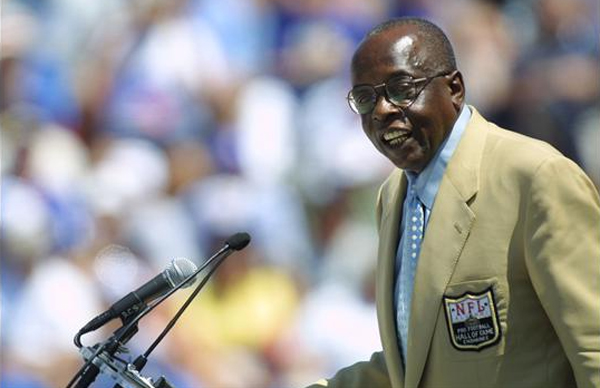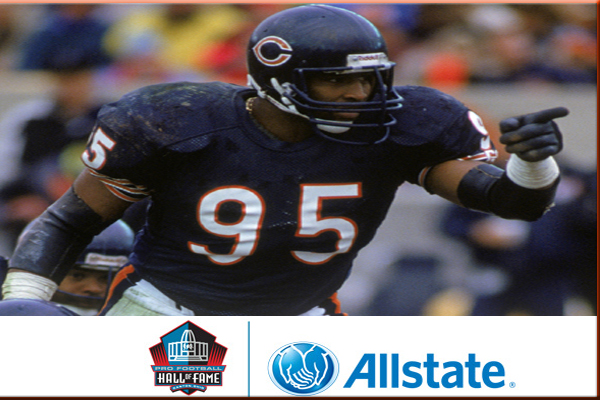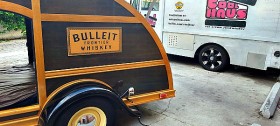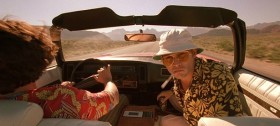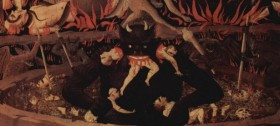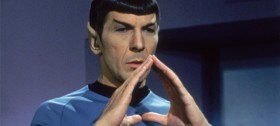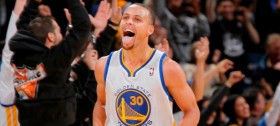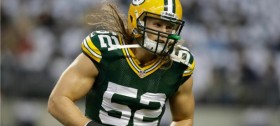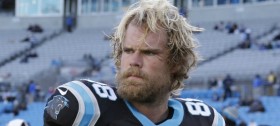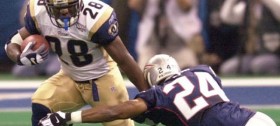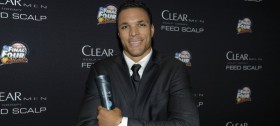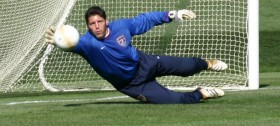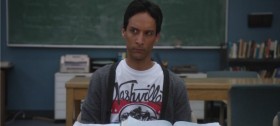Posts tagged Pro Football Hall of Fame

Deacon Jones’ Wife Elizabeth Refects On Husband’s Career
Deacon Jones, former NFL defensive lineman, Hall of Famer, and Orlando Florida football legend, was honored in his hometown community as part of a special program called “Hometown Hall of Famers” presented by the Pro Football Hall of Fame and Allstate. The event took place at Edgewater High School where Deacon grew up. Representatives of the Hall of Fame, Allstate, the Orlando community, and Deacon’s friends and family will be in attendance.
Elizabeth Jones, his wife was kind enough to speak with me about her late husband’s career, the hometown ceremony and what it means to their family and his legacy.
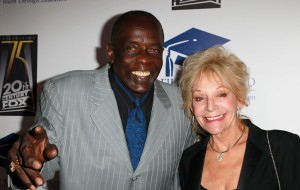 Art Eddy: Can you tell me about the “Hometown Hall of Famers” event that is presented by the Pro Football Hall of Fame and Allstate that is happening in Orlando to honor your husband?
Art Eddy: Can you tell me about the “Hometown Hall of Famers” event that is presented by the Pro Football Hall of Fame and Allstate that is happening in Orlando to honor your husband?
Elizabeth Jones: It is really a great, great promotion. There are so many things that young people can learn about life from my husband. He was always preaching about where he came from and fighting very hard to become what he became and do be the best at what he could be.
So I think that Allstate sponsoring this event and going back to the hometown of these guys is a great educational tool. Hopefully it will not only promote the Hall of Fame, but it will be inspirational for some of the kids, if not all of them. Maybe it will push them to go into life and do good things.
AE: This is a great honor and I know Deacon would appreciate this event. What does this ceremony mean to you to honor Deacon’s legacy?
EJ: So many thing have happened since he passed away. He was honored for things when he was alive, but since he has passed away there has been so many accolades and honors. Seeing now how much he was loved and really respected and how he helped out many people’s lives in ways you don’t even think about when he was alive is amazing to see.
I think he would be very, very pleased. I think for his legacy to continue in the place where he grew up would be especially poignant to him. As you know in the times in which he grew up are quite a bit different than they are now. Often times I think young people don’t know it or they forget about it. I think that it would be a lot to him for them to maintain that knowledge and understand how far they come and what it means now.
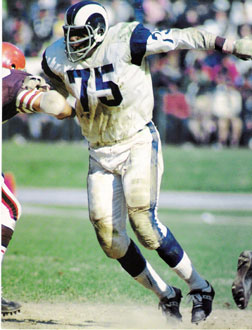 AE: Deacon had a very long list of accomplishment and accolades. What motivated him while he was playing in the NFL?
AE: Deacon had a very long list of accomplishment and accolades. What motivated him while he was playing in the NFL?
EJ: What motivated him more than anything else was where he came from and the times in which he grew up. Nobody thought that he could make it. Nobody gave him credit for being as good as other white people. You are well aware of the circumstances and it really annoyed him so much. It motivated him so much to prove to the world that he was not only as good as, but better than.
People in hometown believed he was a dreamer and he would never accomplish his goals. They thought his goals were something that wasn’t accomplishable. He just refused to accept that. He would not accept the fact that he was lesser than anyone else. What also motivated him was anger. A lot of anger. It served a purpose for him.
AE: What do you think was your husband’s greatest moment in his phenomenal career?
EJ: I think for him the greatest moment was when he was inducted into the Pro Football Hall of Fame on the first year of his eligibility. That was validation for him. You know that my husband was a very in your face kind of person. So that was a big deal to him. Getting into the Hall of Fame meant the world to him. People thought that he couldn’t do it, but he felt like well here I am.
That was a huge accomplishment for him. When he started playing football in the NFL he never played to be a Hall of Famer. It wasn’t a consideration. The fact that he was not only a Hall of Famer, but he achieved that in his first year eligibility was a great moment for him.
AE: Tell me about the Deacon Jones Foundation and the many great things your organization provides.
EJ: Deacon often said that he wouldn’t know what his life would have become if he didn’t get the opportunity to go to a good school and to further his education in ways some others don’t get to. He wanted to give young people the opportunity and really level the playing field.
In terms of the Deacon Jones Foundation it was much more than a scholarship situation. We look to mentor them. We get them involved with corporate America. We introduce them to people in business that can mentor them as well. We teach them about giving back to their community. One of the things that Deacon wanted was to make sure these kids wanted the education we provided for them and give back to their community.
It is a very hands on program with a lot of different aspects to it. Primarily it was created to create leaders in the community and be able to help those in need.
AE: I know Deacon did a lot work with the military. What are some of the things beyond football you want people to know about Deacon?
EJ: Oh my gosh! He was so impressed with the soldiers. He went to Iraq and that scared the devil out of him. When he went to Iraq and saw the risks that these young people were taking. He loved the military beforehand and the fact that people would go into battle for thing that they believed in. It affected him very deeply. The last trip he took in Iraq made him want to be more involved in helping the military.
Deacon was really unique. He was big, bad, fierce, and tough. He was also the sweetest, warmest, and most caring person in the world.
Sep 25th

Hall Of Famer Richard Dent Talks About Hometown Hall of Famers Program
Richard Dent, former NFL defensive end and Atlanta football legend, will be honored in his hometown community as part of a special program called “Hometown Hall of Famers” presented by the Pro Football Hall of Fame and Allstate.”
Dent will be recognized by representatives of the Pro Football Hall of Fame, Allstate Insurance Company and the Atlanta community during a special ceremony at Crim Open Campus High School. The event will take place Wednesday, March 27.
The four-time Pro Bowl honoree was named Super Bowl MVP for his dominating performance against the New England Patriots in the Bears’ decisive 46-10 victory in Super Bowl XX. Dent was inducted into the Pro Football Hall of Fame in 2011.
Art Eddy: You are being honored in Atlanta for the “Hometown Hall of Famers” program presented by the Pro Football Hall of Fame and Allstate this week. How did it feel when you heard the news about this great honor?
Richard Dent: It is a great honor. When members of the Pro Football Hall of Fame and Allstate come together to help people like myself go back into the community and say thanks to your neighborhood and places where you grew up it is a great feeling.
There is going to be a bunch of kids from the Atlanta school systems there and the message will be that you should strive to find yourself. For me I didn’t play sports in high school until my junior year. I was able to go to college on a scholarship and go play in the National Football League. If you play at a certain level you might be able to make it into the Hall of Fame. I never really thought about that, but did dream about going to the Super Bowl and winning it. Had a chance to see those things happen.
Now Allstate and the Hall of Fame have allowed me to get on the road and get into the communities and tell these stories. I am able to thank those who were able shape young men in the community like me. 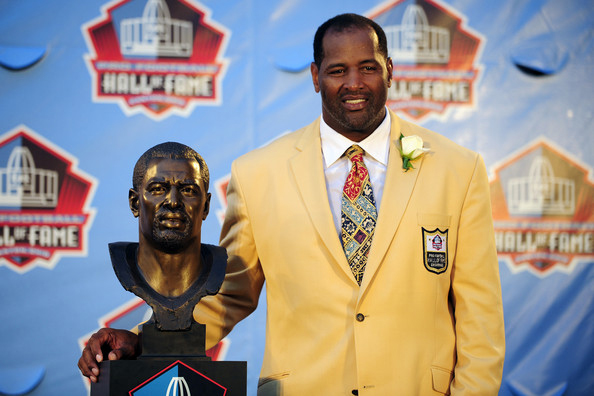
AE: Henry Adams, who is one of your former coaches, will present you with the historic plaque. Talk to me about your relationship with your former coach.
RD: He was the defensive coordinator and Coach William Lester, who was the head coach, would have probably introduced me into the Hall of Fame, but he has passed. I had a chance to thank him at the Georgia Hall of Fame. William Lester has had touched so many thousands of students that went to college.
Henry Adams was the head coach of the basketball team. He made me be the water boy for one year. Then I played my senior year and made All-State. I thought I had something there and didn’t really think about football too much. William Lester help me stay at Mercy High School when my family moved out of the community. He would give me rides to and from school for two years.
It just goes to show you what people would do for you if you put a flag in the ground and work at a goal and find yourself. I wanted to be someone in my community and be looked up to. My family appreciated that. This is why I appreciate Allstate and the Pro Football Hall of Fame to come back and say thanks to some people. Plus if you can save some lives by what you say and they envision theirs lives on what they can be it is a good thing.
AE: You were part of the great 46 Chicago Bears defense with Mike Singletary, William Perry, Wilber Marshall and many others. What was it like to play with those guys?
RD: When I look back it was me, Dan Hampton, William Perry, Walter Payton, and Mike Singletary. I think we had probably seven to eight Hall of Famers on that team. When you have all those guys in life just like in football you can reach your goals. We should have been the first team in the NFL to win three Super Bowls in a row. In four years we only lost ten games.
If you look at all the dominant teams in the NFL from decade to decade it would be hard to find a team to match what we did in those four years. It just goes to show you how tough it is to accomplish what we did.
AE: In the 1985 season you guys were so close to going undefeated and match the record of the ’72 Miami Dolphins. Ironically enough it was the Dolphins who were the only team to beat you that year. At that time did you guys care about that or just focused on winning the Super Bowl?
RD: When we lost the Championship game the year before to San Francisco we vowed to each other on the plane ride back that we were going to win everything hands down. We didn’t say we were going to go undefeated. The first game of the year we were down 21 points at halftime. That was Tampa Bay.
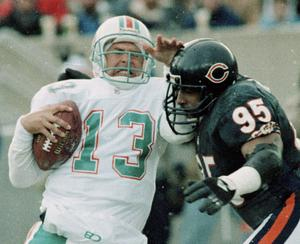 We had a conversation at halftime and we came back to win that game. In Week 13 we faced the Dolphins and we looked at the calendar and thought this was going to be the team to beat since everyone else was kind of mediocre. We lost that game got back home around 2:30 in the morning. We woke up about 12 the next day and went to the studio to record “The Super Bowl Shuffle.”
We had a conversation at halftime and we came back to win that game. In Week 13 we faced the Dolphins and we looked at the calendar and thought this was going to be the team to beat since everyone else was kind of mediocre. We lost that game got back home around 2:30 in the morning. We woke up about 12 the next day and went to the studio to record “The Super Bowl Shuffle.”
We were like so what we lost. We will see those guys down the road. If they do their thing we will see them in the big game. We were looking for them. I am glad we didn’t see them because Dan Marino is a good friend of mine. I would have hated to put on Dan what I wanted to do to him. If he showed up it wouldn’t have been a nice day.
AE: Speaking of Super Bowl XX you guys beat up on the New England Patriots and you took home the MVP trophy. I am guessing 1985 was a great year for you.
RD: Yea it was a great year for me. That was my first award I received for a particular thing I did in a season. I led the league the year before and lead the league that year and I didn’t get anything for it. So for me it was my first award. I was really honored to win that MVP award in the Super Bowl.
AE: After playing with the Bears, you played with the 49ers, Colts, and Eagles. You even won another Super Bowl ring with the 49ers. How was it for you to adjust to playing for those different teams?
RD: No it wasn’t for me. God gave me the physical abilities to play football. You go out and give your best each week. Sometimes there are people who talk about their play and don’t match it with their performance on the field. That was the tough part. You try to work with people and tell them that where there is a will there is a way.
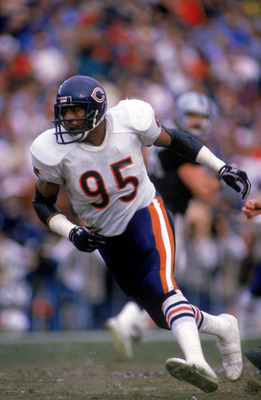 AE: You also were one of the all-time greats in the NFL for sacking quarterbacks. You at times made it look very easy. What was the secret to your success?
AE: You also were one of the all-time greats in the NFL for sacking quarterbacks. You at times made it look very easy. What was the secret to your success?
RD: Well I am a geek when it comes down to technology and tendencies and data. I would break a person down in about 15 minutes. The point is your ability can go to a certain extent. Your talent can go anywhere you want it to go. You look and listen and you start to know what you need to do.
You might be able to take those tendencies from a player and know about 80 percent of what they are going to do. So I don’t have to run crazy. For me when I start moving I am looking at 80 percent of what could take place and I’ll fight for the other 20 percent. You start to have fun during the game because you most likely know what will happen. That gives you longevity. If you are out there bouncing around and running around at some point the game catches up with you.
Everybody can play, but what level can you play at? That is the key for me to be the best you can be.
Mar 26th
